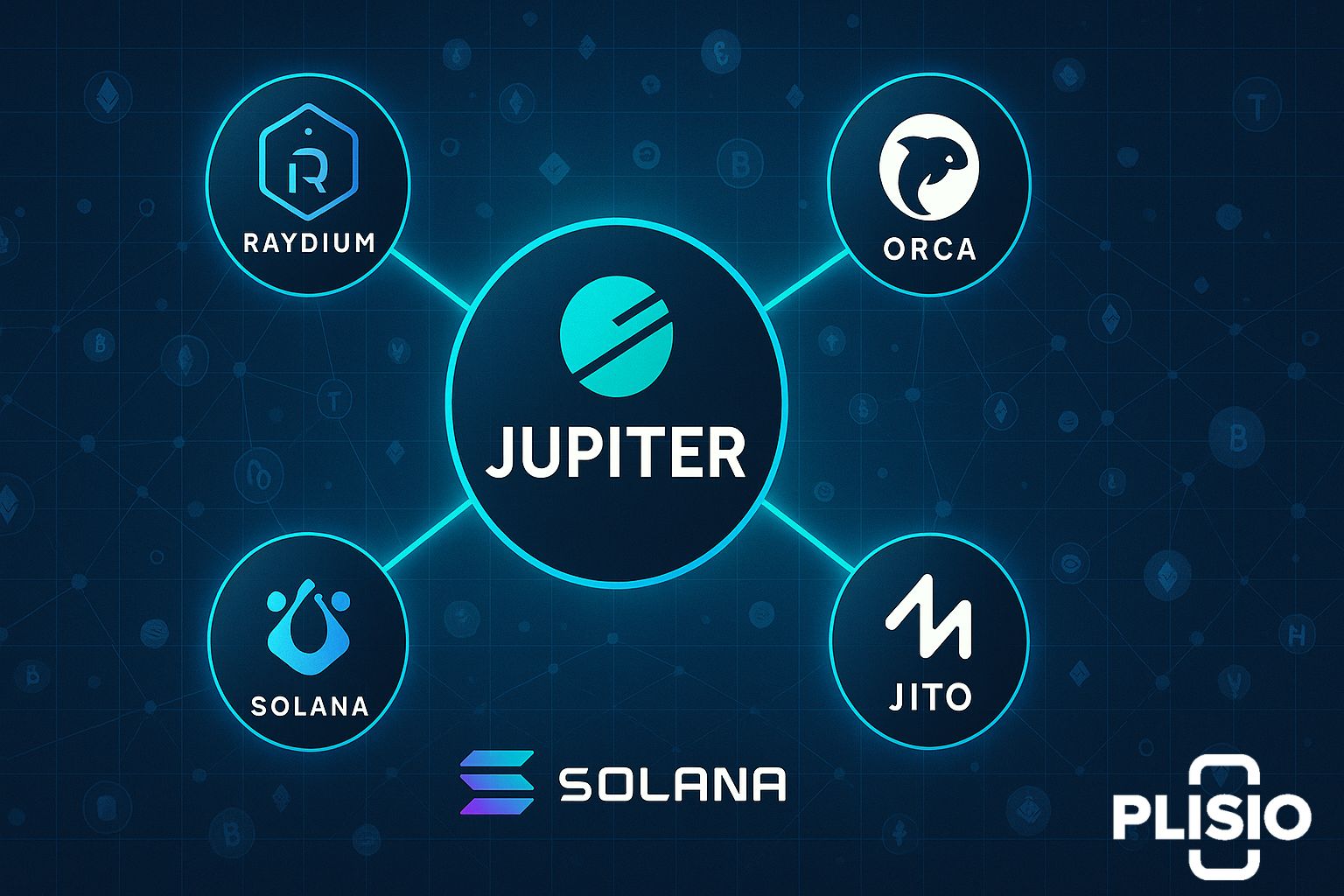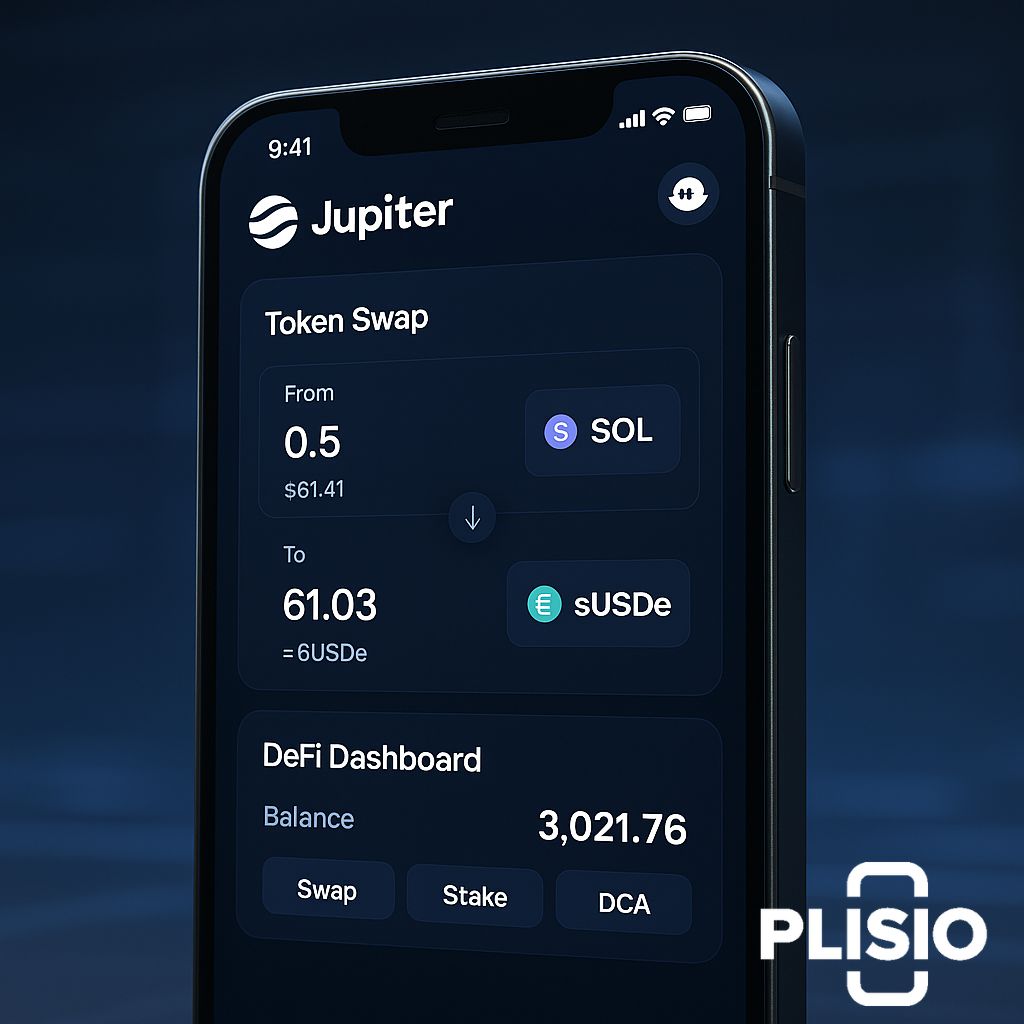Jupiter Solana DEX: Revolutionizing the DeFi Trading Experience in 2026

In 2025, the decentralized finance landscape continues to evolve rapidly, with new innovations redefining how users interact with blockchain technologies. One standout player in this arena is Jupiter, a powerful DEX aggregator built on the Solana blockchain. Combining speed, efficiency, and community-driven governance, Jupiter has become a cornerstone of the Solana ecosystem and a go-to solution for both beginners and advanced crypto traders.
Introduction to Jupiter and Solana DEX
In the fast-paced world of crypto, one project that has emerged as a game-changer in 2025 is Jupiter, the leading DEX aggregator built on the Solana blockchain. Known for its low fees, seamless token swap experience, and smart routing through multiple DEXs, Jupiter is setting a new standard in the decentralized trading space.
Key reasons why users choose Jupiter:
- Low transaction fees
- Lightning-fast transaction speeds
- Full control over private keys
- Integration with popular wallets
As more users migrate from traditional centralized exchanges like Bybit and Binance, the demand for robust, user-friendly, and non-custodial solutions has only grown. Jupiter fills this need, playing a pivotal role in decentralizing trading infrastructure.
How Jupiter Offers a Superior Trading Experience
As a DEX aggregator, Jupiter offers users the best prices by connecting with top Solana-based DEXs like Raydium, Orca, and Jito, optimizing trading volume and minimizing slippage. It aggregates liquidity from automated market makers (AMMs) and exchange market makers, ensuring immediate liquidity and efficiency for every wallet connected.
Notable features include:
- Smart routing across multiple DEXs
- Limit orders for custom trade execution
- Dollar cost averaging (DCA) tools
- Real-time analytics for traders
Jupiter’s advanced trading tools make it a compelling choice for professionals and hobbyists alike.

JUP Token and Governance in a Decentralized Ecosystem
Unlike a centralized exchange such as Coinbase or OKX, Jupiter is structured around community participation. The JUP token is the heart of its DAO-driven governance. As a governance token, JUP enables holders to vote on proposals, allocate funds, and shape Jupiter’s development.
The tokenomics of JUP are outlined below:
|
Metric |
Value |
|
Total Supply |
1.35 Billion |
|
Community Airdrop |
250 Million |
|
Initial Circulating |
1 Billion |
|
Airdrop Date |
January 2024 |
With active JUP trading and growing discussions about JUP price, the token is becoming a pillar of the Solana ecosystem.
Jupiter Mobile App and In-App Trading Features
To meet growing mobile-first demand, Jupiter launched its mobile app, Jupiter Mobile, allowing users to:
- Execute token swaps on the go
- Set and manage limit orders
- Enable in-app integration with Phantom Wallet
- Receive push notifications for price alerts
The app ensures a powerful and convenient Solana DEX experience from anywhere in the world.
Launchpad, Staking, and DeFi Protocols on Jupiter
Jupiter’s launchpad and launch pool features have supported emerging DeFi protocols and community innovations. Users can:
- Stake tokens for passive yield
- Participate in launchpad funding rounds
- Gain exposure to new assets like SUSD, Meow, and LSTs
The platform encourages long-term participation and fosters innovation within the Solana-based community.

Cross-Ecosystem Integrations and DeFi Growth
Jupiter connects with broader blockchain systems, including Ethereum and Uniswap, facilitating:
- Access to liquidity aggregator tools
- Lower slippage and faster trades
- Interoperability with major DeFi platforms
This multichain compatibility positions Jupiter as a central hub for next-gen decentralized finance.
2025 Outlook and Billion JUP Token Distribution
In 2025, Jupiter’s influence continues to grow. The second phase of the 1 billion JUP token distribution focuses on:
- Ecosystem grants
- Staking incentives
- Liquidity mining initiatives
More than a billion in total value has passed through Jupiter’s infrastructure. With Solana’s tech and Jupiter’s roadmap in alignment, future growth looks inevitable.
Final Thoughts on Jupiter's Role in the Solana Ecosystem
Looking ahead, Jupiter’s focus remains on:
- Expanding institutional trading experience tools
- Educating community members
- Continuing to decentralize and evolve protocol governance
By offering robust features, seamless UX, and high security, Jupiter represents the best of what a decentralized exchange can deliver in 2025.




